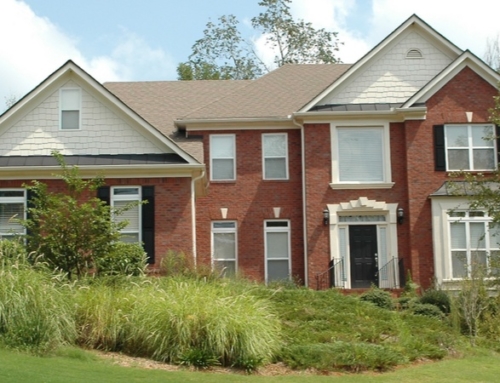Q: “Your recent article (about prices rising and homes selling quickly) in the Sunday section of the Los Angeles Times made me want to cry.
“We have had our house up for sale for six years. We have lowered our asking price 20 percent from what we paid for the house nine years ago. But no one even comes to look at the house. We live in a gated, golf course community in the Inland area of Southern California. It has every amenity. It is also located in one of the areas hardest hit in the recent recession. Local Air Force bases closed and jobs in the aerospace industries and building trades dried up, forcing hundreds of families to transfer to other states or seek jobs elsewhere. Houses stand empty all over the area.
“When we heard that the Los Angeles area real estate was picking up about six months ago, we were all elated. We waited patiently for the momentum to reach our area, but so far it has completely bypassed us.
“There should be a balance in reporting the local real estate market. My out-of-state relatives cannot understand why we can’t sell our home when it is “common knowledge” that L.A. is in a selling boom. People do not understand that Los Angeles does not represent all of California where areas vary greatly in their economy.
“Houses in Moreno Valley that sold for $165,000 a few years ago are now selling for under $100,000. In our senior community, the only way you can get out of your house is to die, which has happened to some of our neighbors, while waiting futilely for years to sell. Their houses are then turned back to the bank by their heirs. No one wins.”
A: I typically answer reader mail in another column, but your letter offers me an opportunity to talk about issues of interest to readers whose homes aren’t selling quickly no matter where they’re located.
First, it’s true that we’re in the middle of a national real estate boom the likes of which have never been seen before. This year, the National Association of Realtors, a Washington, DC-based trade and lobbying group for 750,000 real estate agents, predicts that we will see as many as 4.8 million existing homes sold. That is the third record year in a row, and it is a sales number few thought we’d ever see. In addition to that, the National Association of Home Builders estimates nearly a million newly-built homes will sell, an increase of nearly 20 percent over last year. And some economists predict this rosy scenario couple continue for the next couple of years.
In addition, prices are rising rapidly in many places around the country. In California, there are some neighborhoods where prices have increased as much as 45 percent over last year. In New York City, some prices of upper end property has increased as much as 50 percent over last year’s prices.
But the key phrase here is “some neighborhoods.” As your letter sadly shows, there are places where homes aren’t selling, where prices are still falling, and where people are turning property back to the lender to avoid foreclosure. And, it isn’t just happening in California. Every major metropolitan area has neighborhoods that aren’t enjoying the same kinds of huge gains in home appreciation that are splashed about in the media. There are pockets where prices are falling because the local economy, for one reason or another, stinks. If you have a choice of putting food on the table or paying your mortgage, there’s no real choice.
It’s tough to look at national numbers and realize your neighborhood isn’t even close to keeping up. It’s even tougher to figure out what to do next. Here are some suggestions for you, and anyone currently walking a mile in your shoes:
Refinance your home. Although the decline in your home’s value over the past 9 years may have eaten away at your equity, you should try to refinance to take advantage of today’s super low interest rates. No sense in paying more for a declining asset than you have to.
Consider renting your home. Can you get enough from the rent to pay your mortgage, taxes and insurance? If so, perhaps you can move out of your home, move forward in your life, and wait for the real estate market to slowly improve.
Take the loss. If you can get enough for your home to pay off your loan (and preserve your credit), consider selling, even if it means losing every cent in equity you’ve built up over the years. If you can’t get enough, talk to your lender about accepting a short sale. That is, accepting less than the face amount of your loan as “payment in full.” While fewer lenders will accept a short sale today, there are some that will.
Get a 125 percent loan on your new home. If you’ve found a new home you want to purchase, you may be able to get a loan that is 125 or 130 percent of your new home’s value. That might give you enough cash to pay off your lender and walk away with your credit intact. While the loan will be expensive (the top 25 or 30 percent may carry an interest rate as high as credit card debt), at least youll be on your way.
In a boom economy like we’ve had for the past six years, it’s hard to remember that real estate, like the stock market, goes up and down. If you buy at the high and sell at the low, you’ll lose money. While we buy a home as a place to live and raise our family, it is also the largest single investment most of us will ever own.
Unfortunately, sometimes those investments don’t work out.






Leave A Comment